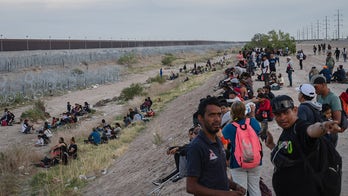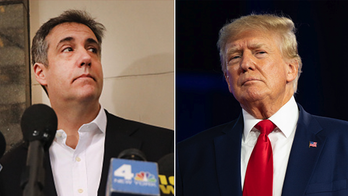Christopher Rufo, a prominent conservative writer, believes the anti-Israel protests and support for Hamas could cause significant damage to the Left's credibility. He argues that the spectacle of masked protesters occupying campuses and supporting "decolonization" is not only unappealing to most Americans, but also risks alienating influential supporters and creating a sense of chaos.

The ongoing protests and the encampment at UCLA over the Israel-Hamas conflict have the potential to inflict substantial damage on the Left's political standing, argues Christopher Rufo, a prominent conservative writer. Rufo believes that the spectacle of masked protesters occupying campuses and supporting Hamas-style "decolonization" will not resonate with most Americans, and could potentially alienate influential supporters and create a sense of chaos.

Rufo asserts that most Americans do not fully comprehend the nuances of the Israel-Hamas conflict or its implications for the United States. However, they generally support Israel over Hamas. Consequently, left-wing protesters will likely struggle to manipulate the emotions of sympathy and guilt on a mass scale, as they were able to in the case of the George Floyd protests.
Rufo emphasizes that the pro-Palestinian protests have the potential to divide the Left, alienate influential supporters, and create a sense of chaos that will ultimately turn people against them. He suggests that the Right should seize this opportunity to create an environment where these protests flourish in blue cities and campuses, but are prevented in red cities and campuses.

Rufo draws a parallel to the 1968 Democratic convention in Chicago, which was marred by violent anti-Vietnam War protests and resulted in a negative outcome for the party. He warns that if the current pro-Palestinian protests escalate and reach the Democratic convention in Chicago, it could lead to a similar unfavorable scenario.
To prevent this outcome, Rufo urges the Right to make the Left own its pro-Hamas faction by either breaking up the encampments, punishing wrongdoers, and restoring order, or by forcing the Left to deal with the issue internally. He emphasizes that Ivy League presidents should be held accountable for their actions or inactions, and that pressure should be gradually increased from outside.
Rufo acknowledges the danger of overreaction from the Right. He emphasizes the need to prevent violence and disrupt violent left-wing political networks before they can mobilize. However, he advises conservative leaders to respond to provocations judiciously, maintaining an air of calm and rationality.
Rufo stresses that the focus should be on keeping red jurisdictions functioning normally, while highlighting the contrast with blue areas that appear chaotic and unstable. He believes that most Americans, regardless of their party affiliation, desire stable governance, support Israel over Hamas, and are weary of the prospect of another George Floyd-style incident.
By successfully maintaining order in their regions, keeping the focus on the disorder in left-wing jurisdictions, and potentially exposing divisions within the Democratic convention, Rufo argues that the Right can move public opinion in their favor. He concludes that a clever strategy in politics involves shifting problems to opponents and capitalizing on them.










